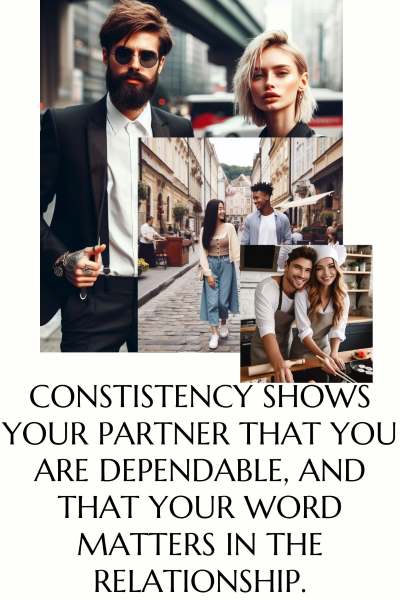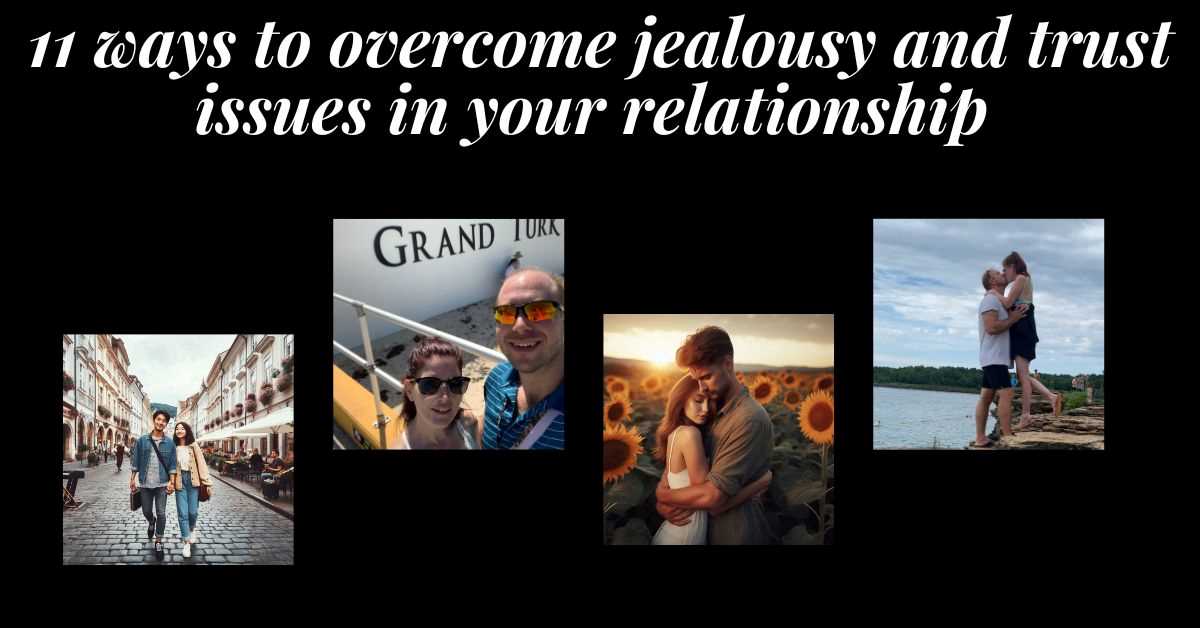13 keys to an Honest relationship: how to Avoid Lies and Secrets
Honesty is something that relationships just can’t work without.
They may be able to go on for a while but a truly happy and satisfying relationship is one where we can put out trust fully into our partner and they know they can do the same.
Honesty encompasses being authentic with your partner, truthful even when it’s hard, and respectful to them and yourself.
But it also means being able to be open, transparent and vulnerable with your partner and that’s what really builds our relationships and grows them into something incredible.
But, being honest isn’t always going to be easy.
Little things like protecting our partner if a piece of clothing looks bad can feel innocent but they pave the path to dishonesty and things that destroy relationships.
In this article, I’ll explore the 13 keys to an honest relationship and how to avoid lies and secrets.
These keys are based on psychological research and practical advice from experts and real-world experience both in my own relationship building a 2-decade happy marriage, but things I’ve learned from others including practicing clinical professional friends and colleagues.
And in each step, I’ll give you 5 real world strategies to build the honesty in your relationship starting today.
1. To have an honest relationship you first have to know yourself
The first key to an honest relationship is to know yourself.
This means being aware of and figuring out what are your core beliefs, values and expectations as well as understanding your own weaknesses as a person and a partner.
And to do that you have to be honest with yourself about your own motives, things you do in the relationship, and your intentions.
Knowing yourself can help you communicate more clearly and effectively with your partner, as well as avoid self-deception and rationalization. And this helps to build the very foundations of our trust in our partner and our relationship.
To know yourself better, you can try some of these strategies:
- Try keeping a record of things you or others do that you get amped up or up in arms about.
- Seek out and actually listen to people when they give you constructive feedback.
- Take some fun online personality tests or quizzes that can reveal your traits and preferences you may not even know you have.
- Look back on how you own experiences have molded you as a person both for the better and worse.
- Look at the things you are passionate about and that give you joy, and chase them.
2. Transparency is key to honesty between partners
Transperency is the next part of having an honest relationship.
This means being open and upfront with your partner about everything that affects your relationship, such as your thoughts, feelings, needs, expectations, plans, decisions, actions, and problems.
But it also means not hiding or withholding any information that your partner has a right to know or that could impact your relationship negatively.
Being transparent builds trust and honesty in a relationship by helping you avoid misunderstandings and conflicts. It also boosts your intimacy by giving each other a closer insight into how you truly feel.
In other words, it instantly makes your partner feel valued and that their feelings are heard.
To be more transparent with your partner, you can try some of these strategies:
- Share your daily activities and experiences with your partner regularly.
- Discuss your goals and dreams with your partner and how you can support each other.
- Consult your partner before making any major decisions that affect your relationship.
- Admit your mistakes and apologize when you do something wrong.
- Ask for help when you need it and offer help when your partner needs it.
3. Respect for our partner helps avoid lies
The third key to an honest relationship is to be respectful.
Respect for your partner means having a genuine concern for their wishes, wants and needs. It’s essentially being polite and courteous with them.
Respect goes beyond just that though. It also means to respect their individuality, what they bring to the relationship and their personal strengths.
Being respectful builds an honest relationship by fostering closeness and appreciation for each other and it can be as simple as putting the phone away during a conversation.
If fact, research has found that having a phone out during a conversation takes away a huge part of the trust, transparency and respect from a talk.
Below are a few easy strategies to be more respectful in your relationship:
- Use polite words and gestures when communicating with your partner.
- Listen attentively and empathetically when your partner speaks.
- Express gratitude and praise when your partner does something nice or helpful.
- Avoid criticizing or judging your partner harshly or unfairly.
- Respect your partner’s privacy and personal space.
4. Consistency is the foundation of an honest relationship
One of the things that builds up trust and honesty in a relationship faster than anything else is consistency.
When you are consistent in your relationship, your partner builds an understanding that you are reliable and care about the directions the relationship is headed.
Consistency is following through on your words and plans. It’s being there when you say you will and being there for your partner when they need it.
It’s basically using your actions to match and back up your words and this is a huge buffer between our relationship and the stresses of our everyday lives. Research has found that outside stress can creep into our relationships and cause real damage, but consistency helps to relieve those effects.
Consistency builds credibility and stability in relationships by reassuring each partner of where they and the relationship stand. It also shows that you take responsibility for your relationship and honor your commitments.
To be more consistent with your partner, you can try to:
- Set realistic expectations and goals for yourself and your relationship.
- Plan ahead and schedule time for quality interactions with your partner.
- Keep track of important dates and events in your relationship.
- Follow up on the tasks and projects that you agreed to do with or for your partner.
- Be punctual and present when meeting or spending time with your partner.

5. You must be truthful even when it’s hard
The next step in building a truly honest relationship is to always be truthful.
Think about it, how can you or your partner have trust in each other if you’re not totally and completely truthful with each other?
Being truthful means more than just not lying though. It means being accurate and objective in how we approach our relationship. It’s being open instead of deceitful and upfront instead of hiding things.
Being truthful can help you avoid conflicts and complications in your relationship, as well as maintain each other’s integrity and commitment to each other.
Truthfulness also shows that you respect the truth and value your partner’s trust.
A few easy strategies for being more truthful in your relationship are:
- Verify the sources and validity of the information that you share with your partner.
- Use clear and precise language when communicating with your partner.
- Provide evidence or examples to support your claims or arguments.
- Acknowledge when you are unsure or uncertain about something and seek clarification.
- Tell the truth, even when it hurts or costs you something.
6. We must be authentic in who we are
You can’t have an honest relationship without both partners being authentic to themselves and to each other.
You and your partner are on personal growth journeys, even in a relationship and those need to be fostered.
Being authentic is simply not having to try and pretend to be something other than yourself. But it goes so much deeper than that.
It takes on when we try to change personality traits so that people like us more, or mimic a trait others around us have.
It’s disingenuous and disrespectful to yourself and the others around you.
Your partner wants you and wants to see and know the real you. And to do that you have to be willing to show them who you are. The good and the bad. The beautiful and the ugly.
This all works to create a deeper and more meaningful connection with your partner. But it does more than just that.
Authenticity also shows that you are comfortable and confident with who you are and that you respect and accept your partner for who they are.
To be more authentic with your partner, you can try some of these strategies:
- Be yourself and don’t try to change yourself to please or impress your partner.
- Share your personal stories, experiences, and perspectives with your partner.
- Express your emotions and feelings openly and honestly with your partner.
- Embrace your strengths and weaknesses and work on improving yourself.
- Celebrate your differences and similarities with your partner.
7. Our partner can’t trust us if we can’t be vulnerable and trust them
The seventh building block to an honest relationship is to be vulnerable.
This means being open and exposed with your partner but it doesn’t mean you emotionally dump all of your hurts, habits and hang ups on them.
Vulnerability is all about being open to our partner with who we are and what we feel. It’s showing our partner the things we are going through, both good and bad, and letting them see how it affects us.
Being vulnerable can help you overcome barriers and challenges in your relationship, as well as foster empathy and compassion because it shows that you trust your partner and that you are willing to take risks for your relationship.
These are some quick and easy strategies to be more vulnerable in your relationship:
- Ask for feedback and advice from your partner when you face difficulties or dilemmas.
- Share your hopes and dreams with your partner and how they can help you achieve them.
- Reveal your secrets and confessions to your partner and how they affect you.
- Seek comfort and support from your partner when you feel sad or hurt.
- Apologize and forgive when you or your partner make mistakes or hurt each other.
8. Respecting differences lets partners show their trust for each other
Respect is one of those things a relationship can’t survive without, and honesty can’t be built up without respecting each other’s differences.
This means trying to be understanding and tolerant of our partner’s opinions, and beliefs when they are different than our own.
Now it can be as big as having a partner with a different faith, or as small as liking different snacks. But the key is that your partner’s opinions are valid and you validate them.
This can be as simple as not forcing your beliefs onto them, and as involved as taking a genuine interest and part in their beliefs and rituals.
Part of respecting your partner and them respecting you is showing empathy in your relationship to help avoid and get through the tough times in a way that brings you closer together.
Being respectful of differences can help you broaden your horizons and learn new things in your relationship, and that brings you closer together.
To be more respectful of differences with your partner, you can try:
- Learn about your partner’s culture, history, traditions, customs, etc., and participate in them.
- Respect your partner’s religious or spiritual beliefs and practices, even if they differ from yours.
- Support your partner’s hobbies, interests, passions, etc., even if they don’t appeal to you.
- Compromise on issues or decisions that involve different opinions or preferences.
- Agree to disagree on matters that are not essential or solvable.
9. Being supportive helps grow loyalty in a relationship
The ninth key to an honest relationship is to be supportive. And this means being helpful, encouraging, and empowering with your partner.
Being supportive of your partner’s dreams and goals is trying to lift them up instead of pushing them down or being critical of their efforts.
But it goes beyond just that. To be supportive, you have to be willing to be that uplifting thing in your partner’s life even when times get tough.
Being supportive can help you strengthen the bond and commitment in your relationship, as well as boost the morale and motivation of both partners. And the science agrees. Supporting our partner is one of the greatest things we can do to uplift our relationship.
Being supportive is a way we can physically and emotionally show our partner that we care about their well-being.
Some everyday strategies to be more supportive in your relationship is to:
- Give your partner positive and constructive feedback on their work or performance.
- Encourage your partner to pursue their goals and dreams and help them overcome obstacles.
- Compliment your partner on their appearance, skills, talents, etc., and show appreciation for their efforts.
- Join your partner in their activities, hobbies, interests, etc., and show enthusiasm and interest.
- Stand by your partner in times of difficulty or crisis and offer emotional and practical support.

10. We can’t become stuck in our own ruts or stagnate
Every honest relationship has flexibility for when life and challenges happen.
Being flexible is just what it sounds like. It’s being adaptable and versatile when adversity arises. It’s having the willingness to change if needed and to get out of your own comfort zone to support or cooperate with your partner.
Being flexible in our relationship gives us the ability to look objectively at a situation and to help come closer to our partner by showing that it’s not our way or the high-way and that we can accommodate them.
Flexibility also shows that you are responsive and attentive to your partner’s needs and preferences.
To be more flexible with your partner, you can try some of these strategies:
- Be open to trying new things or experiences with your partner, such as traveling, learning, or experimenting.
- Be willing to adjust your plans or routines according to your partner’s availability or convenience.
- Be ready to accept or adapt to changes in your partner’s behavior, mood, or circumstances.
- Be prepared to make concessions or sacrifices for the sake of your relationship.
- Be able to handle uncertainty or ambiguity in your relationship.
11. Accountability is the ownership of an honest relationship
The next step in building an honest relationship without any lies or deceit is to build up the accountability in your relationship.
Accountability is the ownership of your honesty. It’s taking responsibility for the things you do in the relationship both good and bad. And it also means accepting the consequences of our actions and trying to make them right when we can.
The biggest part of this is not looking for blame. The moment we start the blame game we throw out any and all accountability and move into the realm of deceit.
Being accountable improves your relationship by diminishing things like blame, guilt, and resentment.
To be more accountable with your partner, you can try some of these strategies:
- Set clear and realistic standards and boundaries for yourself and your relationship.
- Monitor and evaluate your progress and performance in relation to your goals and agreements.
- Acknowledge and apologize when you break a promise or violate a rule in your relationship.
- Make amends or reparations when you hurt or harm your partner or the relationship.
- Seek feedback or guidance from your partner or others when you need help or improvement.
12. Curiosity drives deeper intimacy and expressions of our trust and loyalty
Curiosity is one of those things that can be used like a tool to dig deeper into our relationship with our partner. We can use it to get insight into them, what they are feeling or thinking and what they want for the future.
And it does that by allowing us to be inquisitive and interested in our partner.
This all ties into not taking your partner for granted and instead, truly appreciating the things they bring to you and the relationship.
Curiosity shows your partner that you are attentive and interested in them as a person and helps to build intimacy and closeness by bringing you together over things that may otherwise be differences.
Research has shown that giving genuine interest, curiosity and then actively listening and engaging our partner truly does grow our relationship deeper.
Here are 5 more easy strategies to be more curious with your partner:
- Ask open-ended questions that invite elaboration or explanation from your partner.
- Listen actively and empathetically to your partner’s stories, opinions, feelings, etc., and ask follow-up questions.
- Explore new topics or areas of interest with your partner, such as books, movies, music, etc., and share your opinions or impressions.
- Try new activities or challenges with your partner, such as games, puzzles, sports, etc., and have fun together.
- Surprise your partner with unexpected gifts, gestures, compliments, etc., that show that you pay attention to their likes and dislikes.
13. It takes courage to be open, honest and vulnerable with someone
The final part of building a truly honest relationship is having courage.
It takes genuine courage to be able to be open, honest, transparent and vulnerable with our partner.
It means not being afraid to show your partner the real you and for you to see and acknowledge the real them. It means never hiding yourself or your true intentions from your partner and accepting responsibility of those things you’ve done.
Courage is the thing that is needed to reenforce all of the other things on this list. Without courage, how can you be transparent with your partner? Or tell them when something happens that is a boundary line for you?
Being courageous in a relationship can help you have an even more fulfilling and satisfying relationship together because it shows your passion for each other and confidence about the relationship and who you are.
To be more courageous in your relationship, you can try:
- Have the difficult conversations about differences in opinion or expectations.
- Show your partner how you feel with actions and appreciation for what they do for you.
- Let your partner know when they’ve hurt you and apologize and take responsibility when you have hurt them.
- Be able to say no to your partner, it’s not always letting them down.
- Embrace your vulnerability and uncertainty by expressing your concerns or even doubts.
An honest relationship is made, it doesn’t just happen
Building up a relationship that’s open and honest in which both partners feel validated and totally trusting of each other is the ultimate goal.
And if you follow the tips and tricks in this article you will be well on your way to maximizing the trust in your relationship and on the path to growing something amazing.
Sign up for our free newsletter and get the latest articles, research, and great deals to keep your relationship growing.
You can find our latest articles below:
-

Show Your Love Through the 5 Love Languages: they work & it’s easy.
How to Show Your Love Through the 5 Love Languages The love languages have almost become a relationship trope at this point but it’s because they easily show the differences in how we each want to be loved. And they work. In fact, I can tell you that learning ab out how my wife and…
-

11 Ways to Overcome Jealousy and Trust Issues in Your Relationship
Overcoming jealousy and distrust is key in building a happy and healthy relationship. Here’s the 11 best ways to overcome jealousy in yours.
-

7 things that show him you’re The One starting today
Men are looking for key things that show him you are the one for him and that get him thinking about marriage. Here’s the top 7.
-

7 Sails of Empathy that Blow Your Relationship Conflicts Away in a Healthy and Constructive Way
Every relationship will run into conflict but using the 7 sails of empathy can have your relationship in calm waters and growing better.
-

How to Cope with Stress and Challenges in Your Marriage: 7 Traps to Avoid
Life will throw challenges and stress into your marriage so make sure you don’t fall into one of these 7 traps that can ruin something great.
-

13 keys to an Honest relationship: how to Avoid Lies and Secrets
Building an honest relationship can seem hard but it really just takes the right attitude and these 13 simple keys.
5 responses to “13 keys to an Honest relationship: how to Avoid Lies and Secrets ”
I love this! Great advices and it is just like you mention, we need to be ok with being vulnerable even in the complicated days. In my case we’ve stablished a monthly checkin to just discuss our emotions and overall mental health.
Thanks and that’s awesome to hear that you have started a check in each month! I think over the next year you will definitely see a major change in your overall communication together from it.
This entire post was amazing. This part ” Honesty encompasses being authentic with your partner” stuck out to me, because I had to learn this the hard way
Thanks for commenting. I’m sorry to hear that, but many times those hard lessons are the ones we carry forward to make ourselves better. Especially honesty. I’ve learned it’s so much easier to just be up front and open with everyone rather than try to hide even little things. It just makes for more respect all around.
Great advice! It’s not always easy to be honest but it is important to trust your partner.